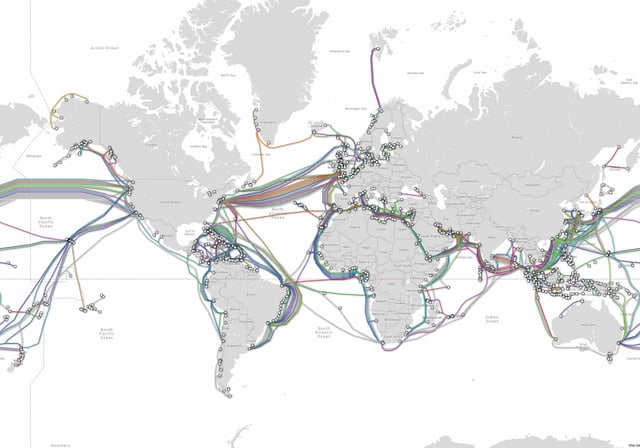
Image via TeleGeography/www.telegeography.com
We all use it. It's hard to go even an hour, minute, (even seconds for some of us) to go about our daily lives at work or at home without using the internet in some capacity. But have you ever wondered...what is the internet, anyway? How does it actually work?
The internet is what you probably think it is: a network. A network of computers, data centers, wifi towers, satellites, routers, etc. – all connected by hundreds of thousands of cables, stringing communications together all across the globe. (The image above shows you how the web stays connected from continent to continent.)
The Guardian, one of the UK's most popular websites, just published a fascinating summary on the internet as we know it. Among some of the more fascinating tidbits in the article are:
- In 2016, the US government’s Lawrence Berkeley National Laboratory estimated that American data centres – facilities where computers store, process and share information – might need 73bn kWh of energy in 2020. That’s the output of 10 Hinkley Point B nuclear power stations.
- The amount of information that courses through the internet is about five exabytes a day. That’s equivalent to 40,000 two-hour standard definition movies per second!
- Google handles more than 40,000 searches per second, and has 60% of the global browser market through Chrome. There are nearly 2bn websites in existence but most are hardly visited. The top 0.1% of websites (roughly 5m) attract more than half of the world’s web traffic.
- Some 3.58 billion people, or 48% of the global population, were online by the end of 2017. The number should reach 3.8 billion, or 49.2%, by the end of 2018, with half of the world being online by May 2019.
- A minute on the internet looks like this: 156m emails, 29m messages, 1.5m Spotify songs, 4m Google searches, 2m minutes of Skype calls, 350,000 tweets, 243,000 photos posted on Facebook, 87,000 hours of Netflix, 65,000 pictures put on Instagram, 25,000 posts on Tumblr, 18,000 matches on Tinder, and 400 hours of video uploaded to YouTube!
For the whole article, be sure and click HERE.

